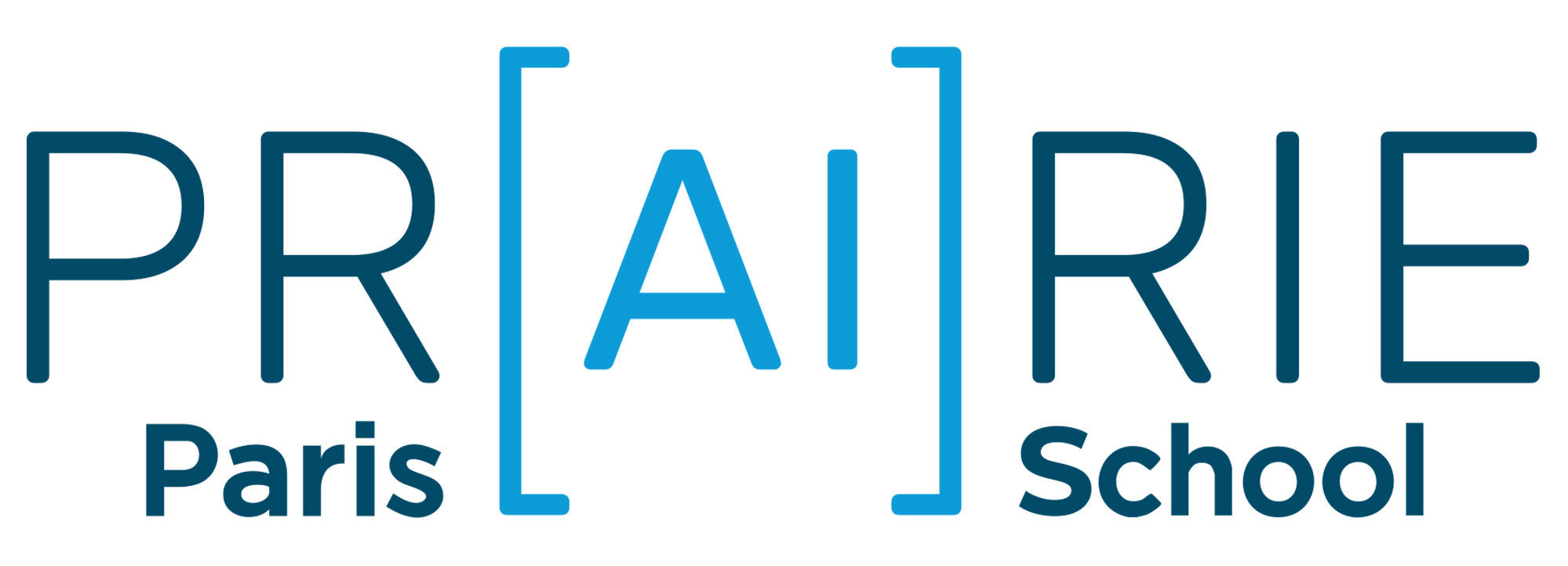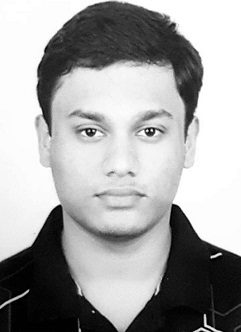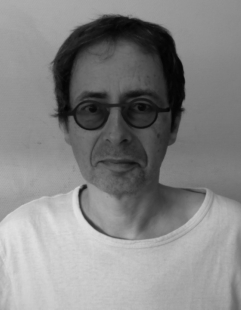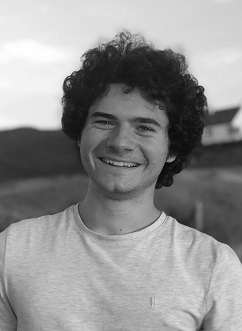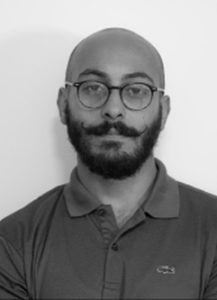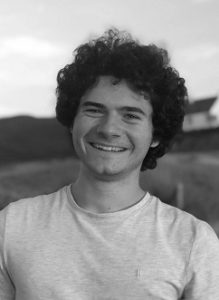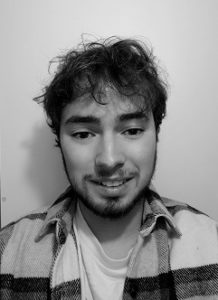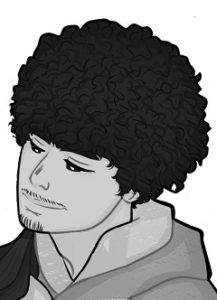MOHAPATRA Biswesh
biswesh.mohapatra [at] inria.fr
Short bio
Integrated Master of Technology in Computer Science Engineering from IIIT Bangalore
Research project
Improving multimodal dialogue systems through conversational grounding.
Short abstract
This project plans to dive deep into the issues regarding conversational grounding. The thesis intends to do the following – 1) It will investigate why modern neural networks trained on vast amounts of data are unable to solve the phenomenon of conversational grounding in current dialogue systems. 2) It will investigate old approaches to conversational grounding for neural network-based models. 3) It will look into the role of nonverbal behavior such as eye gaze and head nods in conversational grounding, and how insights from cognitive science studies of these phenomena can be integrated into deep learning approaches. 4) The project aims to then build computational models that take conversational grounding into account and help the state-of-the-art conversational models like BlendorBot [5] or dialoGPT [6] to generate more consistent dialogues. 5) It will also develop methods to quantify and test the phenomenon of conversational grounding. 6) Finally, it will evaluate the success of these models in human-chatbot conversation, by looking at whether users are more successful in human-computer collaborative tasks.
Autonomous agents and multi-agent systems
Autonomous agents and multi-agent systems cover a wide range of techniques from games to voting theory. Various algorithms and mathematical theories are used in these domains. There are links to machine learning and reinforcement learning as is obvious in games. There are also links to other fields than computer science as for example with computational social choice.
Autonomous agents and multi-agent systems concern automated agents, or groups of automated agents, that have to make decisions in various types of environments (cooperative or adversarial, possibly with uncertainty and/or partial observability).
It covers a wide range of classes of problems such as planning, problem solving, collective decision making, game playing, or the analysis of strategic interactions in distributed decision making. It makes use of various techniques, from artificial intelligence (reinforcement learning, online learning, search algorithms) to computational economics (computational social choice, algorithmic game theory).
Applications range from electronic democracy to computer games and de novo molecule discovery.
DELEMAZURE Théo
Université Paris Dauphine-PSL
theo.delemazure [at] dauphine.eu
Short bio
Master 2 IASD (ENS Ulm)
Thesis title
Context-dependent collective decisions.
Short abstract
Traditional research in social choice (axiomatic or computational) consists in proposing collective decision mechanisms that are often too rigid. We will focus on the development of families of parameterized rules, which have enough variability and flexibility to allow the development of “tailor-made” mechanisms for specific problems.
ARJONILLA Jérôme
jerome.arjonilla [at] dauphine.psl.eu
Short bio
- Master in Computer Science, Sorbonne University
- Double Bachelor in Mathematics and Economics, Université Toulouse
Thesis title
Search and Learning algorithm for games with imperfect information.
Short abstract
Monte Carlo research has revolutionised game solving, and, combined with deep reinforcement learning has led to the creation of programs such as AlphaGo, Alpha Zero or Polygames that have beaten the best human players in many games. My thesis topic will focus on the extension of the methods of Monte Carlo and Deep Reinforcement Learning for imperfect information games with several players (multi-agent system).
AYADI Manel
manel.ayadi [at] dauphine.eu
Short bio
PhD in Computer Science at LAMSADE – Paris-Dauphine
Research project
How does changing the voting system and the electoral district boundaries impact the outcome of the French legislative elections?
Short abstract
The aim of the project is to study the impact of changing the voting system (mixed electoral system, proportional representation …) and the electoral district boundaries on the outcome of the French legislative elections of 2017.
ALLOUCHE Tahar
Université Paris-Dauphine and CNRS
tahar.allouche [at] dauphine.eu
Short bio
Mathematical Engineering degree from ENSTA Paris – M2 Optimization from Paris-Saclay university
Thesis title
Learning societal preferences for automated collective decision making.
Short abstract
We study sophisticated models of agents’ preferences as data structure in a learning framework for collective decision aiding. Statistical, computational and epistemic aspects of the preferences are considered in order to thoroughly explore their structure and efficiently infer optimal decisions.
ABULIMITI Alafate
alafate.abulimiti [at] inria.fr
Short bio
- Master degree in Big Data Management and Analytic, University of Tours
- Engineer degree in Computer Science, Polytech Tours
- Bachelor degree in Applied Physics, Beijing Institute of Technology
Thesis title
The role of rapport in human-conversational agent interaction: Modeling conversation to improve task performance in human-agent interaction.
Short abstract
Human interaction is a complex process, and understanding and structuring the dynamics of the conversation is a necessary step to produce a virtual agent capable of interacting as a social agent. The rapport is a very important factor in the design of social agents. The social agent chooses the proper conversational actions according to the verbal and non-verbal characteristics of the interlocutor in order to maintain or increase the level of rapport while performing a specific task. During the doctoral program, I will use the decision system supported by game theory and deep reinforcement learning to build different models. Then, by using different metrics, I will evaluate whether the addition of these models can improve agent performance.
LANG Jérôme
Multi-agent systems, Knowledge representation and reasoning
lang [at] lamsade.dauphine.fr
Short bio
CNRS senior scientist (2008-), LAMSADE (CNRS, PSL, Université Paris-Dauphine). CNRS silver medal 2017. EurAI fellow since 2009. Associate editor of Journal of Artificial Intelligence Research (2009-2015), Artificial Intelligence Journal (2010-2016), Social Choice and Welfare (2016-). Program chair of IJCAIECAI-2018, General chair of ECAI-2020. Recipient of the Humboldt Research Award 2021.
Topics of interest
Computational social choice, algorithmic game theory, fairness, algorithmic decision theory, knowledge representation
Project in Prairie
Jérôme Lang’s research project focuses on the use of social-choice theoretic, decision-theoretic, and game-theoretic principles and tools for AI. This goes in two opposite directions: from economics to AI, and from AI to economics. He will especially focus in domains where AI helps taking decisions for groups of people. He plans to work on social-choice principles for ethics and fairness in AI, and more generally for assessing the social acceptability of AI algorithms.
Quote
Normative criteria developed in economics (such as fairness, equity, anonymity, privacy, strategyproofness, efficiency), can be help defining frameworks for analysing the ethics and social acceptability of AI algorithms, and investigating the trade-offs that have to be made between incompatible criteria. Notions of fairness in AI and social choice are slightly different but convergent, and the various notions of fairness studied in social choice are relevant to AI research. Moreover, AI techniques are useful for making collective decisions: especially, ML methods for learning and eliciting users’ preferences help making collective decisions that offer a good trade-off between the quality of the outcome and the communication burden. This applies to various areas of public decision making, such as allocation problems (matching students to universities, organs to patients, designing fair and robust schedules in hospitals or high schools), or fair and efficient public spending.
Team
AYADI Manel
Postdoctoral researcher
ALLOUCHE Tahar
PhD Student
DELEMAZURE Théo
PhD Student
CAZENAVE Tristan
tristan.cazenave [at] dauphine.psl.eu
Short bio
Professor, Computer Science, LAMSADE, University Paris-Dauphine, PSL (Sep. 2008-). Editor in Chief: International Computer Games Association Journal (2017-).
Topics of interest
Artificial Intelligence, Monte Carlo Search, Deep Learning, Games, Optimization
Project in Prairie
Tristan Cazenave will address Monte Carlo Search and Deep Reinforcement Learning for games and optimization problems. He will act as the director of the IASD research master in Artificial Intelligence of PSL.
Quote
My current research topics are:
• Tailor the Monte Carlo search to the problem being learned. For example for single player games a Nested Monte Carlo search might learn better than the standard PUCT search. Similarly for incomplete information problems PUCT might not be the best algorithm.
• Accelerate Alpha Zero type Deep Reinforcement Learning. The current algorithm requires huge computations. Finding ways to learn faster is important.
• Apply a combination of Monte Carlo search and Deep Learning to various
optimization problems.
• Explore various network architectures. For example residual networks enable to train deeper net-works faster and with better results. Layers such as Average Spatial Pooling improve much the quality of value networks. New network architectures may improve substantially the level of play.
Team
ARJONILLA Jérôme
PhD student
Private: TAMBY Satya
Postdoctoral Researcher
COHEN-SOLAL Quentin
Postdoctoral researcher
